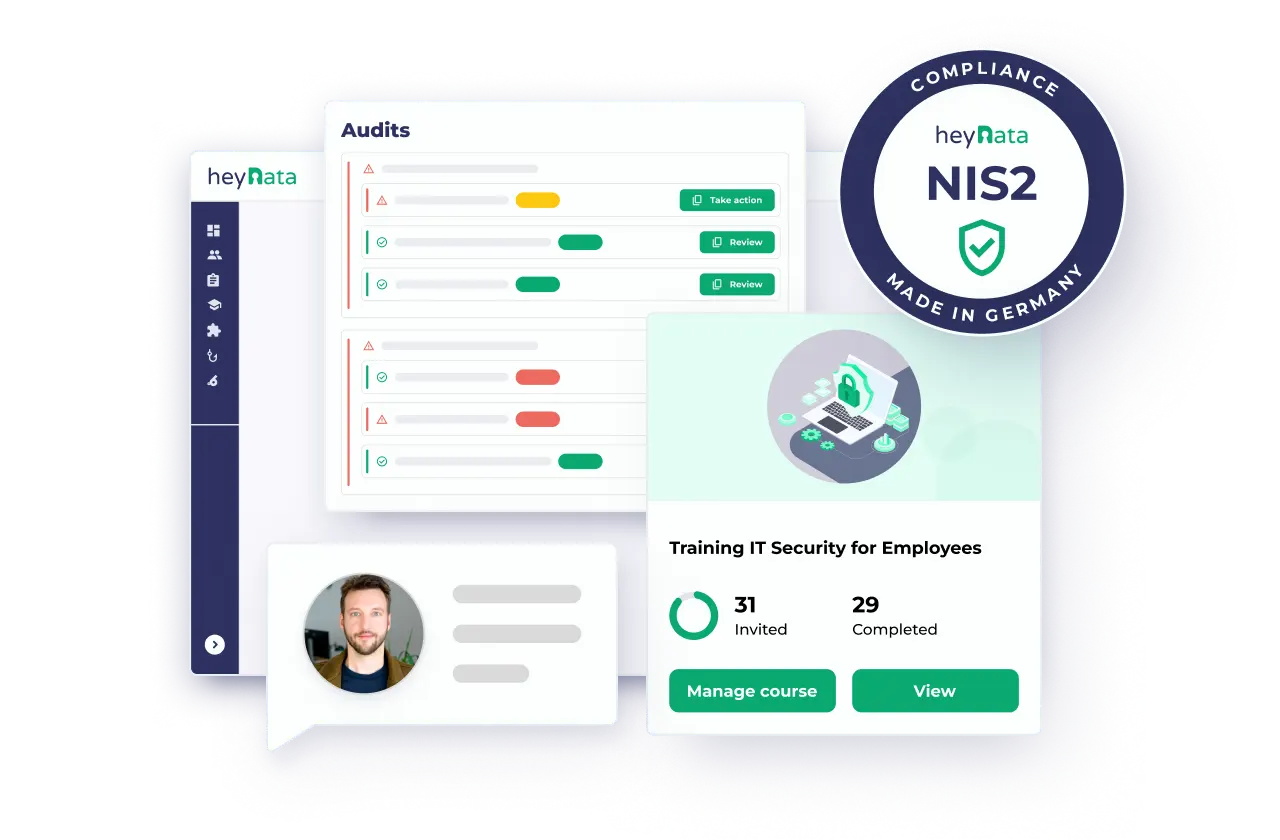
Over 2,000 Companies Already Rely on heyData’s Compliance Solutions






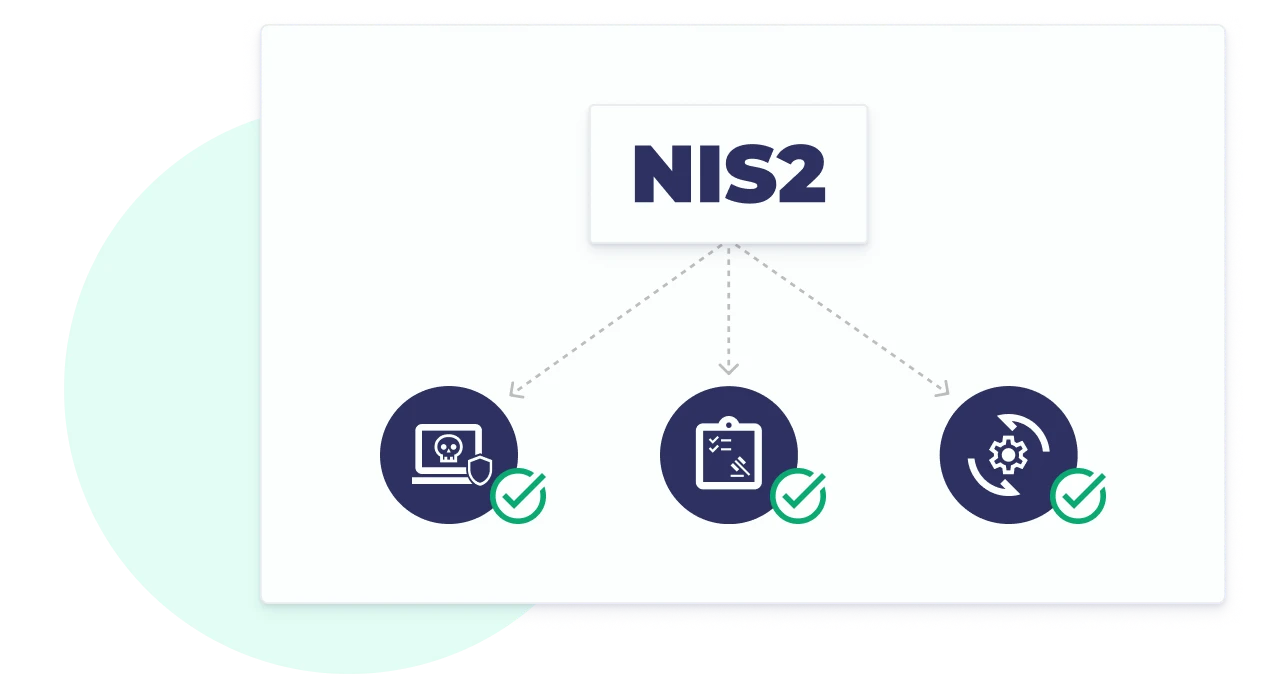
What is the NIS2 Framework and Why is it Important?
The NIS2 framework is the updated EU directive to promote cyber security in the member states. It introduces stricter security measures and extends the scope to more sectors.
Compliance with NIS2 is critical to protecting your business from cyber threats, ensuring legal compliance, and maintaining operational resilience in the digital world. The framework integrates seamlessly with existing security and compliance programs such as the GDPR.
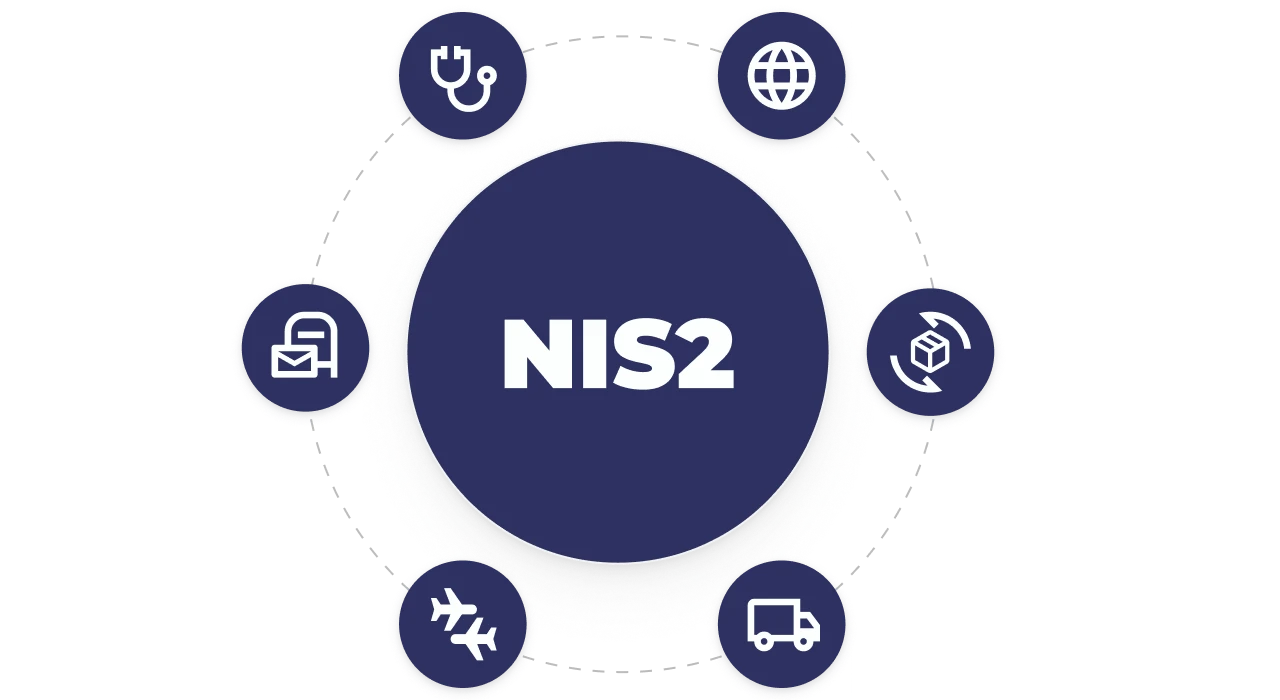
Who is Affected by the NIS2 Directive?
In a nutshell: companies from 18 defined sectors with at least 50 employees or a turnover of 10 million fall under NIS2. In the future, IT service providers, online marketplaces, mechanical engineering companies, food suppliers, laboratories, and research institutions may also be included. Organizations that provide essential support services for these sectors are also included.
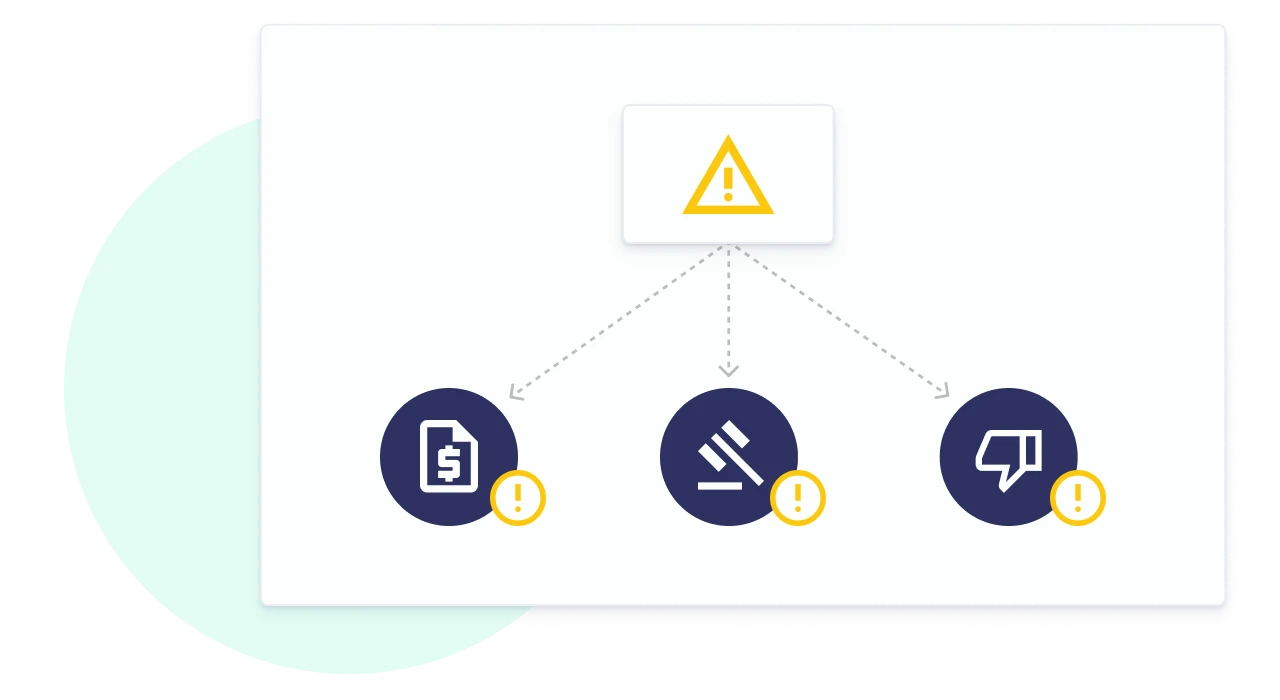
What are the Consequences of Non-Compliance?
Possible incidents can not only lead to technical failures, financial losses, and a damaged reputation, but those responsible can also be held personally liable.
- Fines of up to 10 million euros or 2% of annual global turnover.
- Enforced additional measures by the authorities
- Personal liability of the management
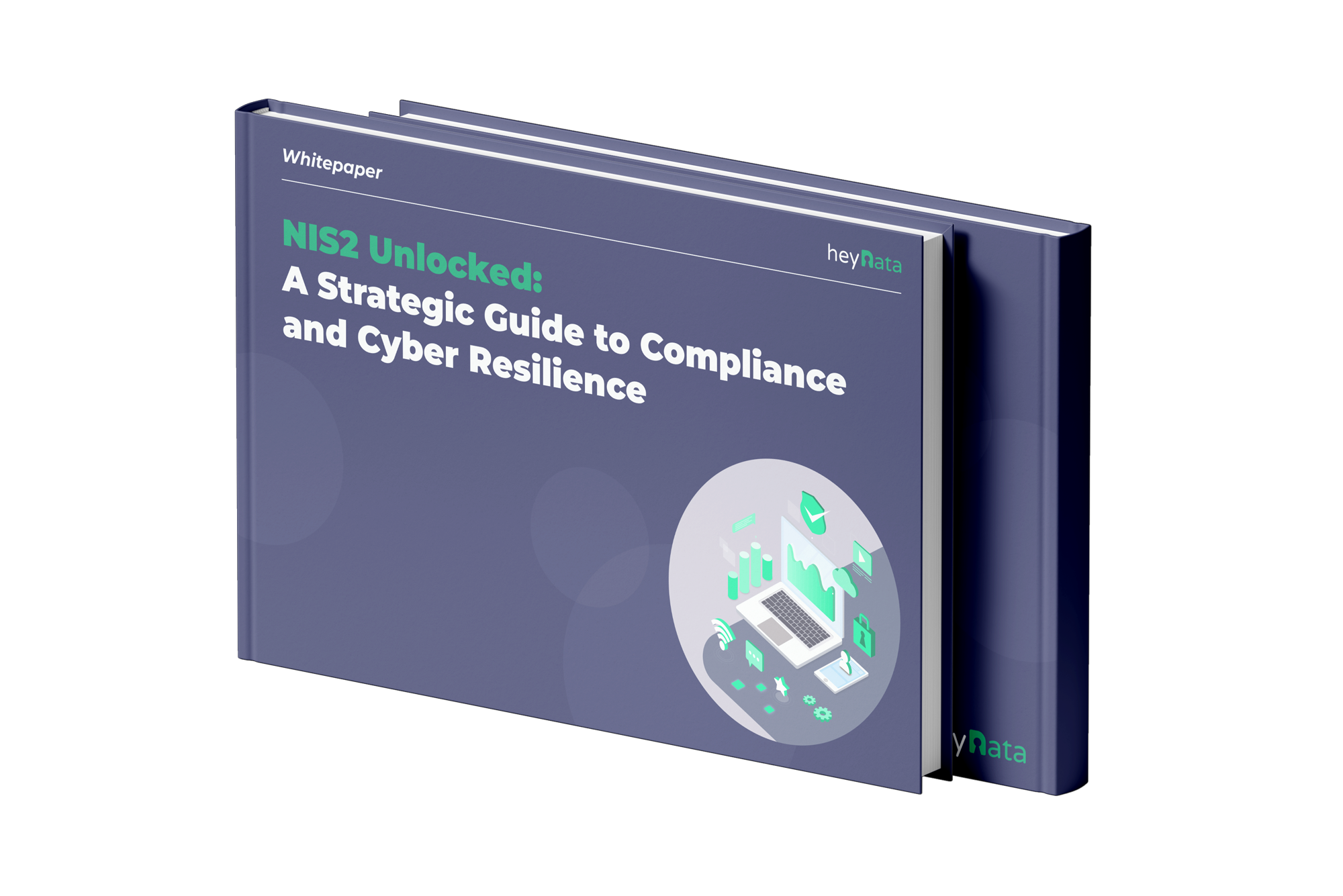
NIS-2 Unlocked: Strategic Guide for Compliance
Build a culture of cyber resilience with NIS-2 compliance.
What Steps are Required?
1
Risk Analysis and Management
Processes must be defined for risk analysis, risk management, information security and dealing with cyber incidents. We base these processes for an information security management system on ISO 27001.
2
Securing Systems and Processes
The implementation of encryption techniques and multi-factor authentication is mandatory. These measures are crucial to ensure the protection of sensitive data and secure access to critical systems.
3
Business Continuity and Recovery Plans
Business continuity and recovery plans must be in place to deal with an emergency. In addition, significant incidents must be reported to the responsible office within very short deadlines - in some cases within 24 hours.
4
Employee and Management Training
Evidence must be provided that all staff receive regular training on rules of conduct and risk changes. The management must receive special training in risk identification and assessment as well as risk management.
Hear it From Our Customers
Meet the regulations and outperform the competition by complying with NIS2.
Speak to one of our experts!FAQ
The NIS2 Directive is the EU's updated legislation aimed at improving cybersecurity in member states. It replaces the original NIS Directive in 2024 and introduces stricter security measures, broader industry coverage and stricter compliance requirements to address increasing cyber threats.
The most important requirements include risk management measures and business continuity management (Art. 21).
This includes, for example, the use of technical measures such as
- Cryptography
- Encryption
- Multi-factor authentication
- Reporting obligations (Art. 23)
- Obligation to register (Art. 3 para. 4, Art. 27)
- Duty to inform (Art. 23)
- Approval, monitoring and training obligation for managers (Art. 20 para. 2)
The NIS2 directive emphasizes the importance of securing interconnected networks and requires companies to assess and mitigate cybersecurity risks within their processes and supply chains. This includes assessing the security practices of suppliers and service providers.
Large and medium-sized companies from the following sectors are affected:
Sectors with high criticality:
- Energy
- Transportation
- Banking
- Financial market infrastructures
- Healthcare
- Drinking Water
- Waste Water
- Digital infrastructure
- Management of ICT services B2B
- Public administration
- Space
Other critical areas:
- Postal and courier services
- Waste management
- Chemicals
- Food
- Processing/manufacturing industry
- Digital service providers
- Research
Companies must report significant cyber security incidents to the relevant authorities within 24 hours of their discovery. This includes an initial notification, followed by detailed updates as more information becomes available. The directive also requires interim and final incident reports to ensure thorough documentation and response.
It may be advisable to have an expert like heyData by your side to respond quickly and competently if the worst comes to the worst.
The NIS2 Directive was adopted on January 16, 2023, and member states have until October 17, 2024, to transpose the measures into national law. Organizations are expected to comply with the requirements from this date.
To prepare for compliance with NIS2, organizations should:
- Determine whether they fall within the scope of the directive.
- Conduct a comprehensive risk analysis.
- Implement mandatory cybersecurity measures.
- Develop an incident response plan.
- Ensure that top management is involved and takes responsibility.
- Strengthen security practices in the supply chain.
The high requirements for IT and network security are intended to ensure unrestricted availability and a high level of protection for important services. Companies and residents in the EU should be able to rely on the IT infrastructure having a high level of confidentiality and integrity. The standardization of requirements will make it easy for companies to meet them and coordinate their cooperation. This will promote innovation, stability and competitiveness in the EU and prevent economic damage.



